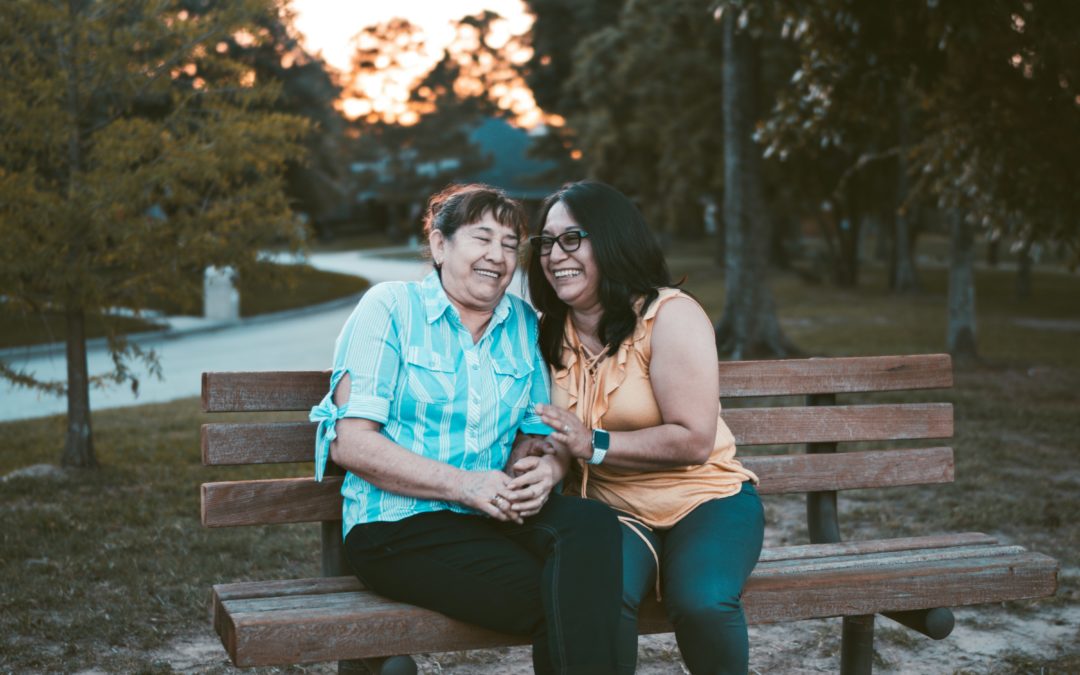
Whether you grew up in a faith tradition or not, the idea of honoring one’s parents is prevalent in our society, and for good reason. We are part of humankind and connection with others, especially those around us, is necessary for our survival. There is also a bond between parents and children that pulls them together. As infants, we rely on our parents to care for and nurture us. It is only natural that, as they become less able to care for and nurture themselves, we feel called to return to them, to nurture and care for them as they have cared for us. Sometimes, even if we did not have the nurture and care in our childhood from our parents, there is something that tells us we “should.”
In future blog posts, I will cover that idea of “should,” especially as it pertains to how we interact with loved ones with whom we have a complicated or even toxic relationship, but for the purposes of this post, let’s discuss what it means to care for, to honor, to “do unto our parents what they did for us.”
How is it possible to care for our loved ones and still care for ourselves without being selfish? I mean, isn’t the very nature of honoring our parents meant to place them above us in importance and, therefore, their needs come BEFORE ours?
Maybe, but I think that is a simplistic view of “honor” and “care.” What if the best way to honor our loved ones is to have well-lived lives? To live in the abundance of the life they gave us? What if honoring and caring for someone wasn’t just about doing what they say or tending only to their physical needs? What if caring for our loved ones and honoring them in the process meant that we honored their lives, their decisions, and their hope for the future…us, their children?
Yes, of course, respectful and compassionate care is what we strive for when caring for others. But there is more than one “other” in your life? Is caring for your elderly parent allowing you to care for the other people in your life with whom you have community, companionship, and connection?
And, getting to the “self-caregiver” portion of this post, is caring for them allowing you to care for yourself? The child they love, have nurtured, and cared for throughout your life? Don’t you think that you are important to them? Your wellbeing, your physical and emotional health, your marriage, your relationship with your kids…isn’t tending to and nurturing all of that part of how you honor your parents, showing them that they have nurtured and tended to you well?
Ok, maybe I’m dreaming big, I know. It’s not that easy, is it? And our parents, as they age, they need more, they ask for more, and even demand more of us. They say things that maybe, if the were not in pain, or scared, or frustrated, they wouldn’t say. And that hurts and makes it harder for us to say “yes” to caring for ourselves, to showing love to ourselves “as they have loved us.”
My mother said one time in a moment of fear and frustration, “I gave up so much to raise you. I need you to take care of me now!!”
I thought about how much she had sacrificed and how hard much of her life has been. I thought about how she tried to love, care for, and provide me with opportunities, fun, and connection with others.
And then I thought about my own children. How I wanted to show love to my children. I wanted to show care for and love for them. I wanted to stop being so exhausted and cranky and always running to mom’s at the drop of a hat. I wanted to give my kids what my mom had often tried to give me and, as most parents do, I wanted to give them more.
In order to do that, to be present in the lives of the people around me other than my loved one, I needed to tend to myself, to nurture myself, to care for the needs I had been pushing to the bottom of the to-do list.
When we care for ourselves, we are honoring ourselves, yes, but we are also honoring the gift of our lives that has been given to us by our parents and by our Creator. It allows us to continue to love others well. Our parents, our families, our friends.
In order to learn the balance of loving and honoring those to whom we give care and loving and honoring ourselves, we must learn to connect as deeply with our own needs as we do theirs and offer ourselves compassion when we feel like we are failing…to our parents, to ourselves.
We must have both: self-care and care for others; self-compassion and compassion for others. They are intertwined. We cannot give care to others if we haven’t first given it to ourselves. We cannot receive care from others if we have no connection with others.
We must love one another, including ourselves.
180 Days to Reclaim Your Time!
If you are ready to take back your time and stop running on other people’s timelines, join The EMPOWERED Self-Caregiver Cohort. You’ll get training, personal guidance, and specific strategies to help you reclaim your time, your health, and the moments you’ve been missing.
IN JUST 180 days, learn to create a sustainable self-care practice so that you can be empowered in your life and in your caregiving journey.

